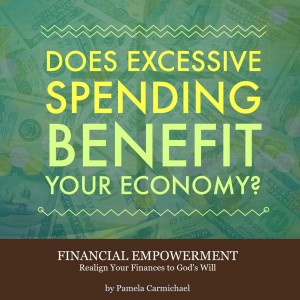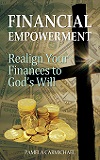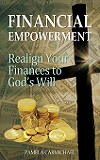7 Rays of Hope for the Unsatisfied Spender
“Why do you spend money on what cannot nourish you and your wages on what does not satisfy you?” Isaiah 55:2 (GW)
The words written in Isaiah 55 are some of my treasured scriptures. As I was preparing for this blog post on emotional or excessive spending, Is. 55:2 first came to mind. Then while reading the Globe & Mail I came across an article that highlighted the devastating effects of spending excessively.
In Isaiah 55, God Himself addressed the exiles and it’s interesting that He should ask a money related question: “Why do you spend money on what cannot nourish you and your wages on what does not satisfy you?” Why did He ask? He wanted them to stop practicing the ways of Babylon and follow Him.
Hmmm, that’s food for thought. The same is true for Christians today. God does not want you and me to behave like and/or embrace the practices of the world even though we live in it. He wants you to live by His word and make Him your first priority. He doesn’t want you to worry about what you have or don’t have because He promises that what you need He will make sure you have (Matt. 6: 24-34).
But really, why do so many spend and yet remain unhappy? Why do some many think that they need “retail therapy” (as some like to call it)? Emotional and excessive spenders want to:
- Fill an emotional void such as when a person experiences a breakdown in a relationship
- Get away from the reality of life as some think that shopping is a great stress reliever. But wait until they receive the credit card statement.
- Impress or try to impress others with what you have or supposedly can “afford” only to worry later about how and when they can payoff that debt
The problem with this way of spending is that there are always negative results. You can end up with:
- Excessive debt and have difficulty making the repayments
- Too much stuff and not enough time or energy to make use of it all and the heavy weight of trying to manage it
- Strained or severed relationships with loved ones because your focus is on money and not enjoying the gift of family and friends
- Little or no savings or investments because most of your money is going toward debt repayment and basis living expenses
This all sounds quite depressing and so it is. But I want to focus on that fact that there is hope and there is help for those who desire to change.
- First of all, seek the Lord. Yes, come to Jesus. Spend time in the word of God (Isaiah 55: 3) to gain insight on how to manage your money. You can even read books to help. You can check out Financial Empowerment which gives both biblical and practical solution.
- Please whatever you do, seriously and earnestly pray about your spending habits. Ask God to remove your desire to go off on spending sprees. Ask Him for help, strength and grace for the journey ahead to make sound financial decisions and to follow through on each of them.
- Ask for forgiveness from God and from others you may have hurt on account of your actions. Forgiveness is the healing balm you need to move forward with your life in a positive way. Forgiveness will bring newness to your life – a fresh start for you and your loved ones (Luke 15:17-24).
- Make a strong decision to reduce or eliminate the purchase of certain items for an extended period. For example, maybe for 6 month or a year you can choose not to buy clothes, electronics, home accessories, dine out, and so on. Basically, don’t buy anything you don’t need and have enough of.
- In the midst of asking for forgiveness, ask a few people to support you. Make yourself accountable to a few trusted friends. And to the ones you often go shopping with, give them notice that your shopping spree days are over and you’ve started a new chapter in your life.
- You may consider getting professional help – if you can afford to and you believe that the return or value would far outweigh the investment. You can hire a money coach or debt counselor. This is totally up to you.
- Set a goal. Determine when and how you will pay off your debt. Have a plan that you see and work towards daily. With your new no-excess-spending policy, you can funnel more money into debt repayment and savings.
This may seem like a lot to do but my friend, take one step at a time. It took time to form bad money habits. Therefore time will also be needed to break them – particularly the chain of consumerism that has many bonded up. So consider this, with God being your Help you have all you need including time to change your money habits and change your life.
I wish you success on the journey to a satisfying life.
Now, it’s your turn…
If you have conquered excessive spending and debt, share your victory with us. I would love to hear your story. Help give hope to someone today.
7 Rays of Hope for the Unsatisfied Spender Read More »
















